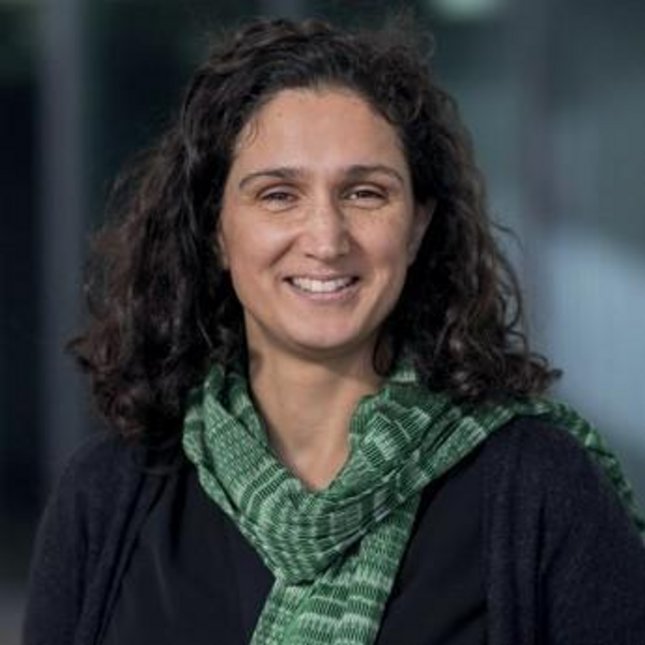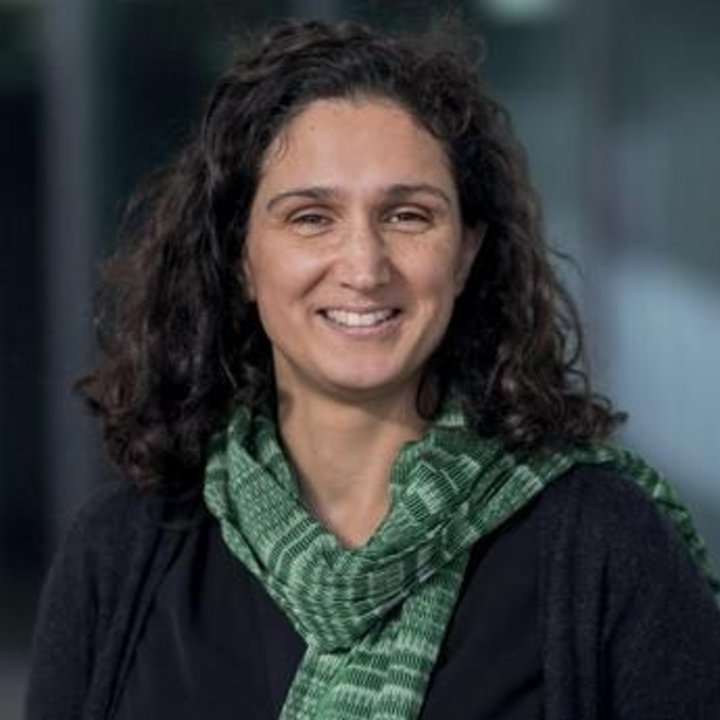
You’ve received the Marina van Damme Award. Can you outline why they chose you?
In the view of the committee, I bridge the gap between scientific research and industry.
You will spend part of the money as a guest researcher at Kinetics Technology. You obviously believe that they have a solid research agenda. What are you going to research there?
Actually, I should be there now, but COVID-19 has thrown a wrench in the works. The original plan was to exchange ideas and experiences on new techniques that focus on CO2 reduction. If possible, we want to take this to the next level. First in a pilot and then in industry.
One of the options that both Kinetics and I really like is a synthesis of hydrogen as an energy carrier. In an ideal scenario, we will extract the hydrogen from sustainable non-fossil materials instead of from natural gases. In my PhD research, there was a good example of a technology for taking it from biomass.
At Kinetics, they haven’t explored this possibility yet, but they are achieving a lot of progress in making hydrogen gas with the help of membranes. There’s a strong synergy between our methods and research that I did in my lab has already demonstrated this.
But there’s still a world of difference between demonstrating something in a laboratory and convincing companies that it’s worth investing in. That’s a real challenge and Kinetics has a lot of experience with it.
“As a researcher, I love to make the big scary unknown less scary and more familiar.”
So, when I go to Rome later, I’ll visit their installations, talk to the team and we’ll probably write some proposals together in order to put our plans into action. And, of course, I have some new techniques I want to bring them in on.
Kinetics is in Rome. Are there no comparable organizations in the Netherlands?
No names come to mind, but Kinetics has the experience and vision that suit me and my work. On top of that, there are two more reasons to choose them:
There’s already an EU project in progress in which my group and Kinetics work together with the aim of stimulating exchanges between academics and industry. This project covers part of the costs of my visit to Rome. The Marina van Damme Award is a personal award and it helps to cover the care costs my family has to incur during my absence.
International collaborations and visits abroad will also help my academic career.
Are you currently working on specific projects?
Definitely, on several. I’m researching technology that supports sustainability. For example, we want to make important chemicals such as polymers from sustainable sources. And we’re working on a project to see if we can convert CO2 emissions from factories into fuel for cars. And then there’s a project in which we’re testing whether we can use electricity from sustainable sources instead of heat for chemical processes.
Of course, I don’t do it all alone but rather together with a group of students I supervise and other researchers with their own expertise. New technologies can only be developed if you work together with a lot of disciplines.
What role can your field play in achieving a truly circular economy?
To answer this, I’d like to borrow the TU/e slogan: “Where innovation starts.” I’m a chemical engineer specialized in chemical reactions. We explore new concepts, experiment and show that it works. We try to understand the science behind them so that these concepts can be improved and brought from the lab to practice. In that final step, we need companies like Kinetics to play their part.
And what does your ideal role in that process look like?
As a researcher, I love to make the big scary unknown less scary and more familiar. I get the chance to discover new technologies and prepare them for industry. In order to do that, it’s very important that we know what industry wants.
In an article, you said that companies tend to stick to conventional means and methods. They do this for economic security. At the same time, you say that innovation can give companies a competitive advantage. Why do many companies stick to their familiar methods while their hearts tell them otherwise?
“If we look at the big picture, there is simply no other way but to move forward.”
Of course, it’s not the case that all conventional techniques are inefficient. And industry also looks for progress, but in small steps – if they do anything at all. I think that companies mainly want certainty and then prefer to stick to what they already know, even if there are known risks involved. After all, they’ve already learned to deal with those risks. However if we look at the big picture, there is simply no other way but to move forward. We have to tap other sources to get our energy and materials. There just isn’t enough oil for the long term. And the environment can’t bear that burden either, so we’ll really have to look for new methods and lasting change.
“You need a lot of ingredients for academic research. Passion and dedication are of vital importance. And we need money, of course.”
Would you be able to do your job even if you didn’t get funding from sources like the University Fund?
My time is dedicated to research as well as teaching. You need a lot of ingredients for academic research. Passion and dedication are of vital importance. And we need money, of course. We get that through so-called funding schemes from the EU and the NWO, among others. They pay for the research, materials and equipment, students, etc. Without this funding, research would not be possible.
Why do you think the University Fund is important?
Standard funding pays for the cost of the research. But this grant runs through the Fund and funds something else which is at least as important: my academic career. It gives me the opportunity to be more visible and to strengthen my network, as you need both if you want to become a better scientist. But it also helps me achieve a better balance between my personal and professional lives. In addition to being professionals, we’re also often mothers, fathers, spouses, partners, etc. That’s an aspect we often forget. We’re people with personal and professional dreams.
